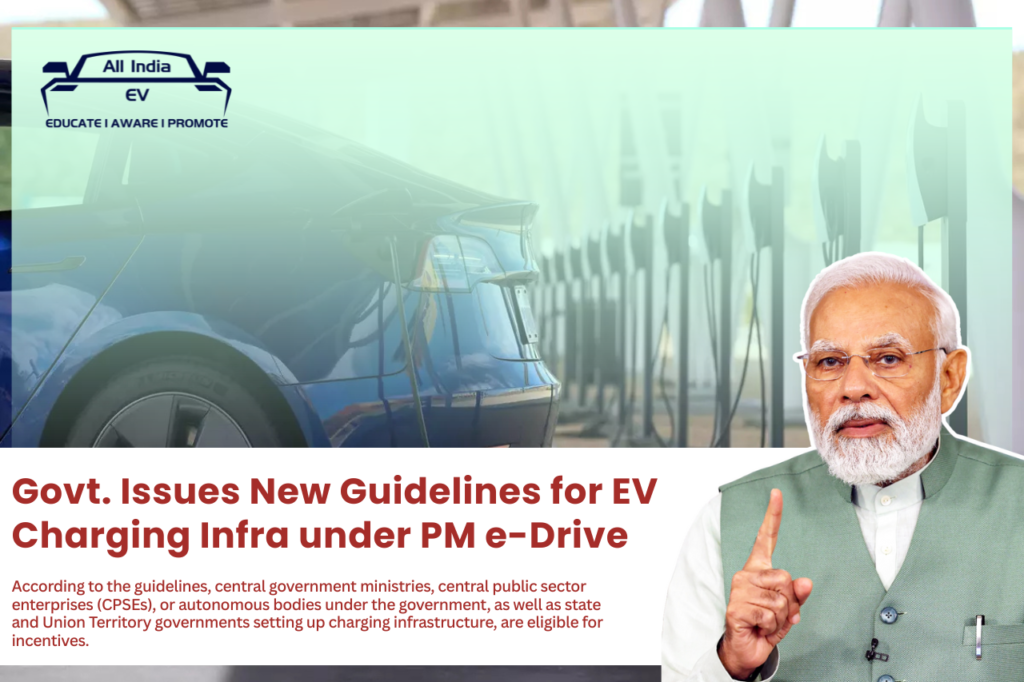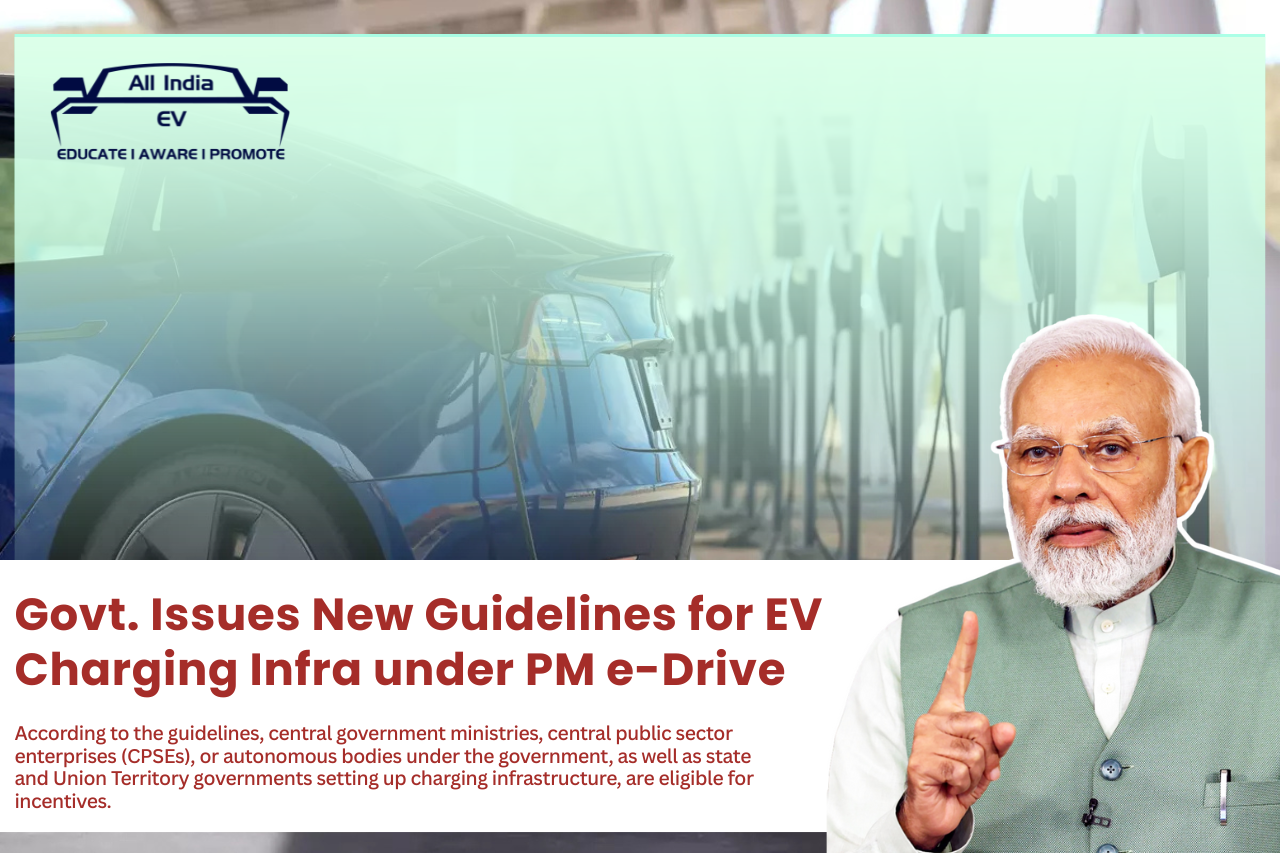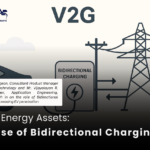
Central and State Government Bodies Eligible for Incentives Under EV and Green Initiatives
The Ministry of Heavy Industries has unveiled the operational guidelines for establishing electric vehicle (EV) public charging infrastructure under the ambitious PM E-Drive scheme. This development is expected to accelerate the growth of EV adoption in India by addressing one of the most significant barriers—limited charging infrastructure.
Eligibility and Incentives
According to the guidelines, central government ministries, central public sector enterprises (CPSEs), autonomous government bodies, and state/Union Territory governments setting up EV charging infrastructure are eligible for incentives.
The Rs 10,000 crore PM E-Drive scheme has earmarked Rs 2,000 crore specifically for subsidising charging infrastructure, including the deployment of up to 72,300 new public EV charging stations, battery swapping stations, and battery charging stations. The subsidy primarily covers upstream infrastructure costs but can, in certain cases, also be extended to EV Supply Equipment (EVSE) costs. Subsidy calculations will be based on a percentage of either the Bureau of Energy Efficiency’s benchmark costs or actual costs, whichever is lower.
Priority Areas for Deployment
The scheme emphasizes high-density deployment in urban centers with populations exceeding one million, smart cities, towns connected to major metro cities, state capitals, and key national and state highways.
Charging infrastructure located in government buildings—including offices, residential complexes, hospitals, and schools—will receive a 100% subsidy on both upstream infrastructure and EVSE, provided the chargers are free for public use.
For charging stations on sites owned or managed by government entities, such as Oil Marketing Company outlets, airports, bus/metro stations, ports, and NHAI toll plazas, the subsidy is 80% for upstream infrastructure and 70% for EVSE. All other public locations, including city streets, shopping malls, and market complexes, will receive 80% subsidy on upstream infrastructure. Battery swapping or battery charging stations at any location are also eligible for 80% subsidy on upstream infrastructure.
Benchmark Costs and Infrastructure Details
Benchmark costs for upstream infrastructure vary by charger capacity, ranging from ₹6.04 lakh for chargers up to 50 kW to ₹24 lakh for chargers above 150 kW. EVSE benchmark costs depend on charger type and capacity, with a 50 kW CCS-II charger priced at ₹7.25 lakh and a 100 kW CCS-II charger at ₹11.68 lakh.
Upstream infrastructure typically includes:
- Distribution transformers
- LT and HT cables
- AC distribution boxes, circuit breakers, isolators, and protection equipment
- Mounting structures, fencing, and civil works
- EVSE includes the charger unit and charging guns.
Addressing EV Adoption Barriers
With nearly 30,000 public EV charging stations currently operational, India still lags behind mature EV markets. A higher charger-to-vehicle density is critical to alleviate range anxiety and encourage consumers to switch to electric mobility.
The PM E-Drive scheme specifically targets:
- 22,100 fast chargers for four-wheelers
- 1,800 chargers for buses
- 48,400 chargers for two- and three-wheelers
with the Rs 2,000 crore outlay dedicated to these segments.
Strategic Deployment and Implementation
Government and industry experts have emphasized the importance of strategic placement of EV chargers in EV-dense cities, warning that installing stations in low-demand areas could waste resources.
Central ministries and state/UT governments must appoint nodal agencies to aggregate demand and submit proposals. Eligible entities can set up and operate stations themselves or partner with a private Charge Point Operator (CPO). Bharat Heavy Electricals Ltd (BHEL) has been designated as the project implementation agency, with subsidy disbursement occurring in two stages based on performance and compliance standards.
All new stations will integrate with the National Unified EV Charging Hub, providing real-time availability information and facilitating payments.
Standards and Compatibility
All EV charging infrastructure under the PM E-Drive scheme must comply with Ministry of Power standards to ensure a uniform, interoperable, and reliable national network.
Approved connector standards include:
- Light EV DC (IS-17017-2-6) and Light EV AC/DC Combo (IS-17017-2-7) for two- and three-wheelers, up to 12 kW
- CCS-II (IS-17017-2-3) for four-wheelers, buses, and trucks, ranging from 50 kW to 250 kW
- High-power CCS-II chargers (250–500 kW) for heavy-duty e-buses and e-trucks, with minimum 120 kW per charging gun
Way Forward
The release of these guidelines marks a significant milestone in India’s EV ecosystem, focusing on rapid deployment of public charging infrastructure. By offering substantial subsidies, enforcing technical standards, and ensuring strategic placement, the government aims to accelerate EV adoption, reduce range anxiety, and create a sustainable, nationwide charging network.With the PM E-Drive guidelines in place, India moves closer to building a robust EV infrastructure that can support the growing electric mobility sector, including private vehicles, commercial fleets, and public transport systems.










